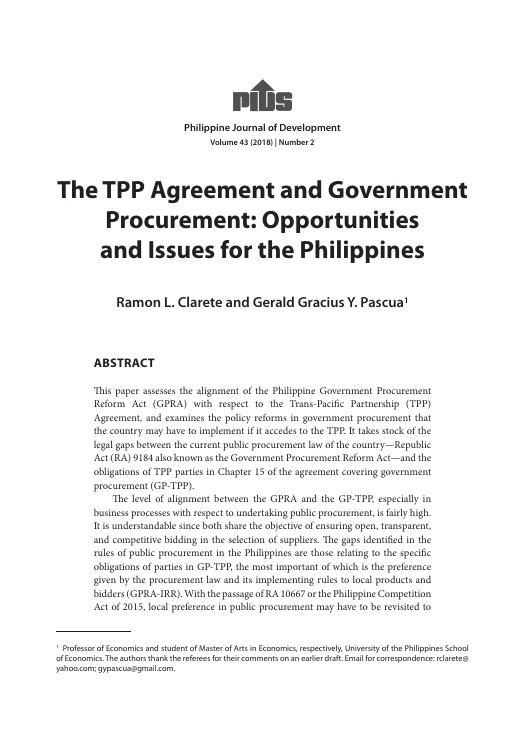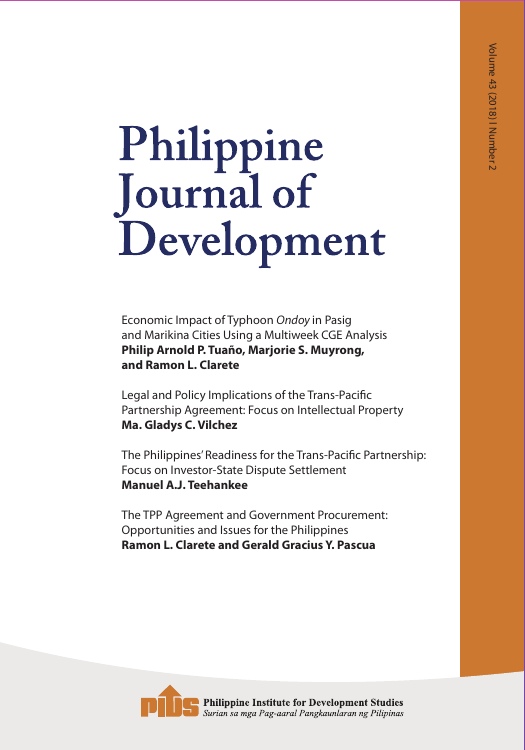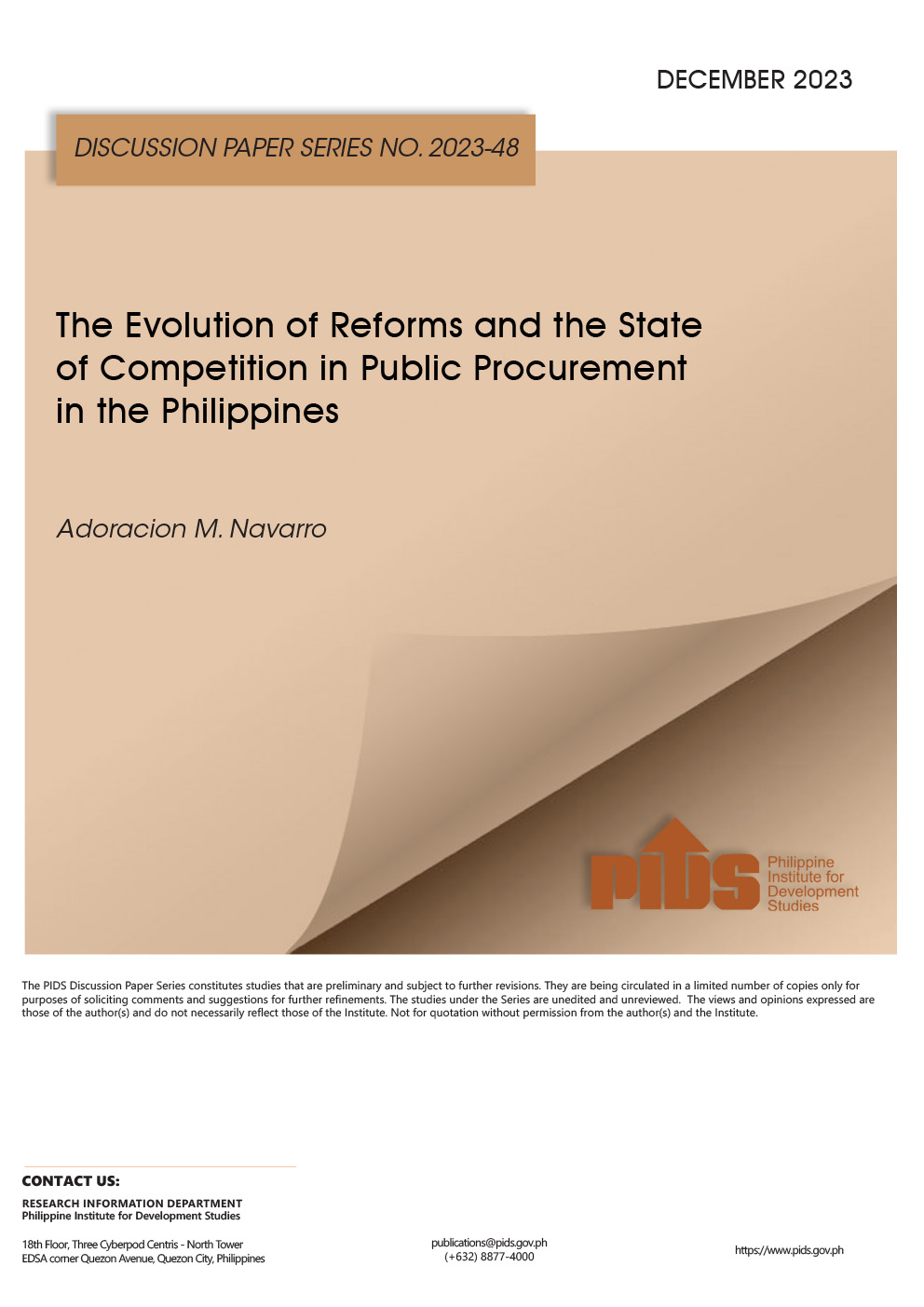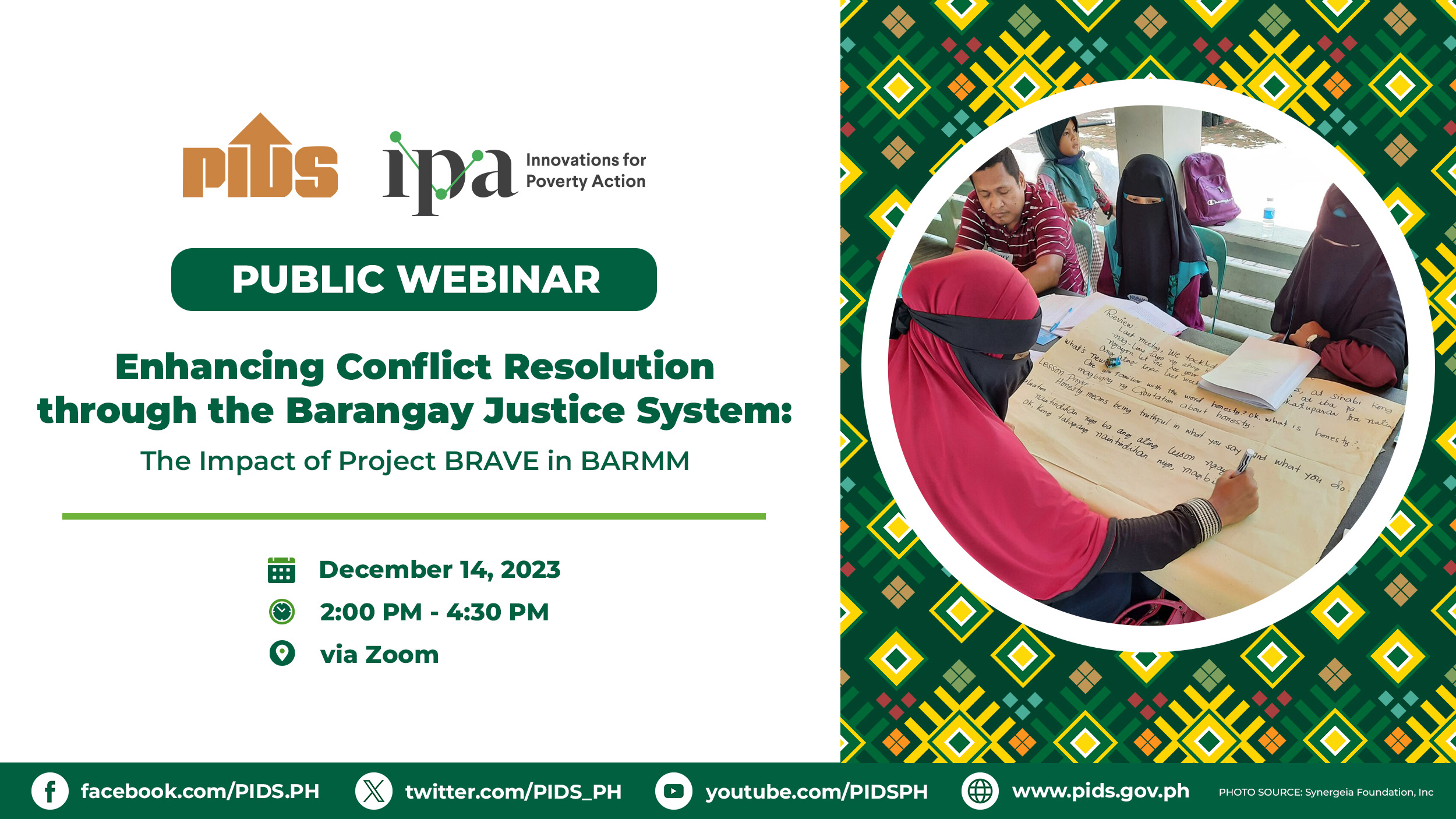
The delays in government spending for the past years may stem from various reasons, with procurement as one of the major ones, a study by state think tank Philippine Institute for Development Studies (PIDS) said.
The discussion paper, “The Promises and Pains in Procurement Reforms in the Philippines”, authored by National Economic and Development Authority Undersecretary Adoracion Navarro and PIDS Research Analyst Juan Alfonso Tanghal examined the procurement system in the country to fully understand the challenges in its implementation. Navarro wrote the paper while she was a senior research fellow at PIDS.
According to the study, most government agencies have problems in the preliminary or the planning stage of procurement—including difficulties in coming up with the correct cost estimates or the ceiling price, which result to failure of biddings that delays the disbursement of funds.
Moreover, among the recurring reasons for delays in the planning stage is the lack of knowledge and technical know-how on the part of end-users and procurement teams about Republic Act 9184 or the Government Procurement Reform Act of 2003.
To resolve this issue, the authors suggested hiring of procurement specialists or transaction advisers to aid in streamlining and fast-tracking the procurement process.
Collusions or conspiracies between agencies and suppliers are also prevalent in government agencies. To prevent this from happening, the authors proposed the implementation of an integrity pledge to be included as part of the technical specifications. A ‘round-robin’ scheme may also be adopted to give equal opportunities to contractors.
In terms of the functionality of the Philippine Government Electronic Procurement System (PhilGEPS), accessibility is among the major issues, the study said. Due to unreliable internet connection, government agencies often post during ‘dead’ hours or on weekends, when it is possible to upload large files. The PhilGEPS is the DBM’s centralized electronic portal that serves as the primary source of information about government procurement.
For their recommendations, the authors urged government agencies to pursue investments on systems change and organizational culture change, invest on planning and other preparatory activities before the actual procurement, innovate orientation in public procurement, and adopt value-for-money procurement.
Moreover, they noted that the government encourages competitive bidding, which is the most used type of procurement bidding (99% for civil works, 96% for goods, and 85% for consulting services), records showed.
This, according to them, is a promising result because aside from it being the required mode by law, “competition elicits the selection of the most efficient firm and thereby ensures production efficiency and low cost”.
This is contrary to the current proposal of Congress to give emergency powers to President Rodrigo Duterte authorizing him to adopt alternative modes of procurement (listed in the study) for transportation projects to address crisis in the sector.
Based on the gathered data for civil works, which is expected to get the largest portion of the transportation budget, bid failure rate for alternative mode is higher at 59 percent compared to the 47 percent for competitive mode.
The authors said that “the result does not support the intention of Congress' proposal to do away with competitive bidding in order to fast-track transportation projects”.
The government agencies assessed by Navarro and Tanghal as part of their study are the following: Department of Public Works and Highways, Department of Education, Department of Social Work and Development, Department of Interior and Local Government, Department of Agriculture, Department of Health, Department of Transportation and Communication, and Department of Environment and Natural Resources, and Commission on Elections. According to the authors, these agencies registered the largest underspending in 2014 and 2015. ###
If you wish to know more about the study, download a copy of the discussion paper on the PIDS website.












